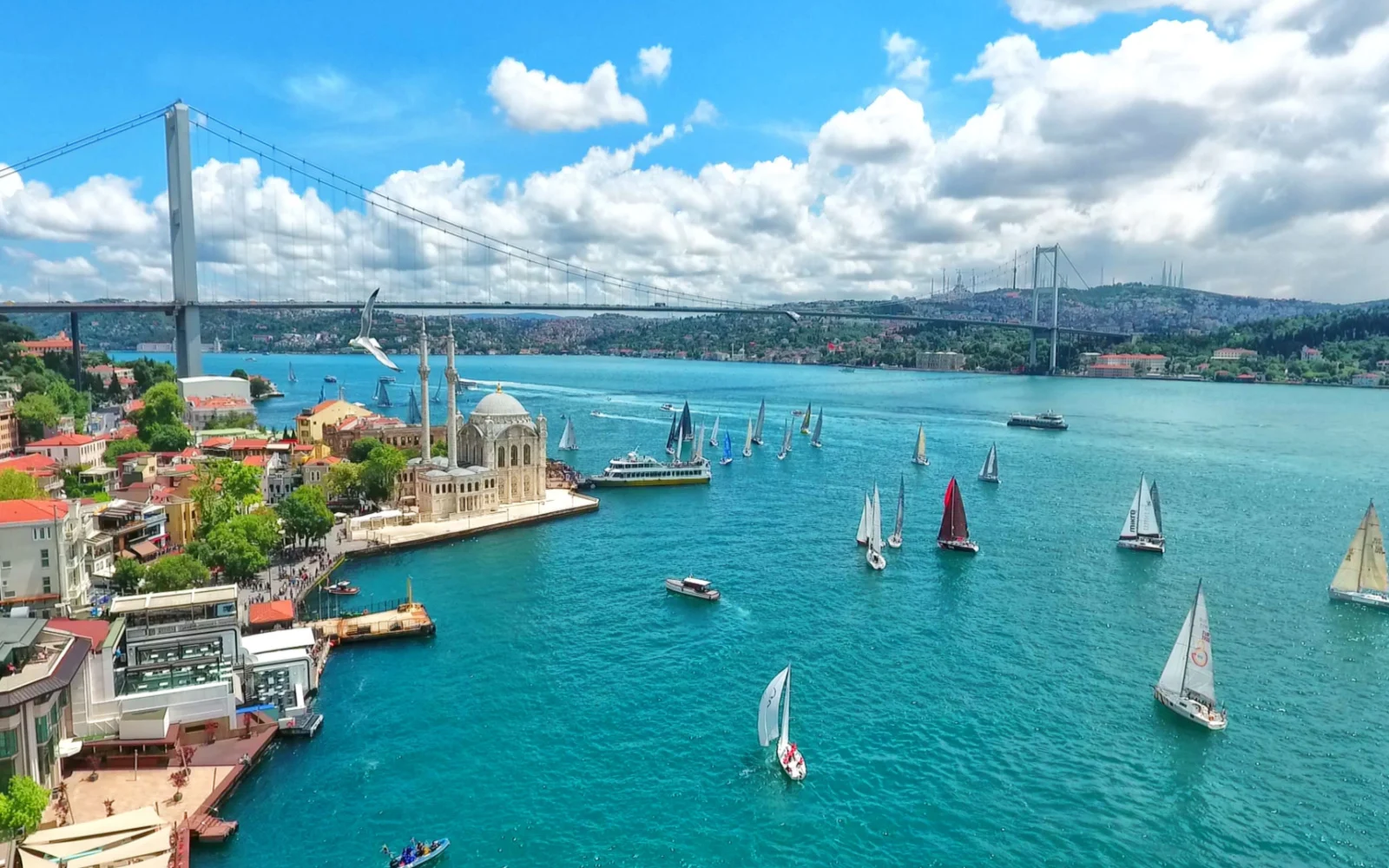Is Istanbul safe to visit?
Yes, Istanbul is relatively safe for tourists, though petty crime exists. Occasional civil unrest and terrorism risks are present, but less frequent than in other parts of Turkey. It’s best to avoid protests and be aware of heightened security measures in tourist areas, making Istanbul one of Turkey’s safer cities according to international advisories.
The city of Istanbul, which straddles two continents and has been the seat of countless empires, is a must-visit destination for all travel lovers.
Istanbul’s main sights are its many historic landmarks, such as the Hagia Sophia, an old Byzantine church converted into a mosque, and the Ottoman-era Topkapi Palace. Wandering through its Grand Bazaar is an unforgettable shopping experience.
While in town, make sure to go on a boat ride and see the city from the water, or visit the many islands that form secret pockets in the town. There’s so much to see in Istanbul, and that’s before getting into the museums, literary history, and amazing food culture.
However, before you get too excited, it’s a good idea to look into the safety of your destination. Keep reading to learn more about whether or not Istanbul is safe to visit.
Is Istanbul Safe to Visit?
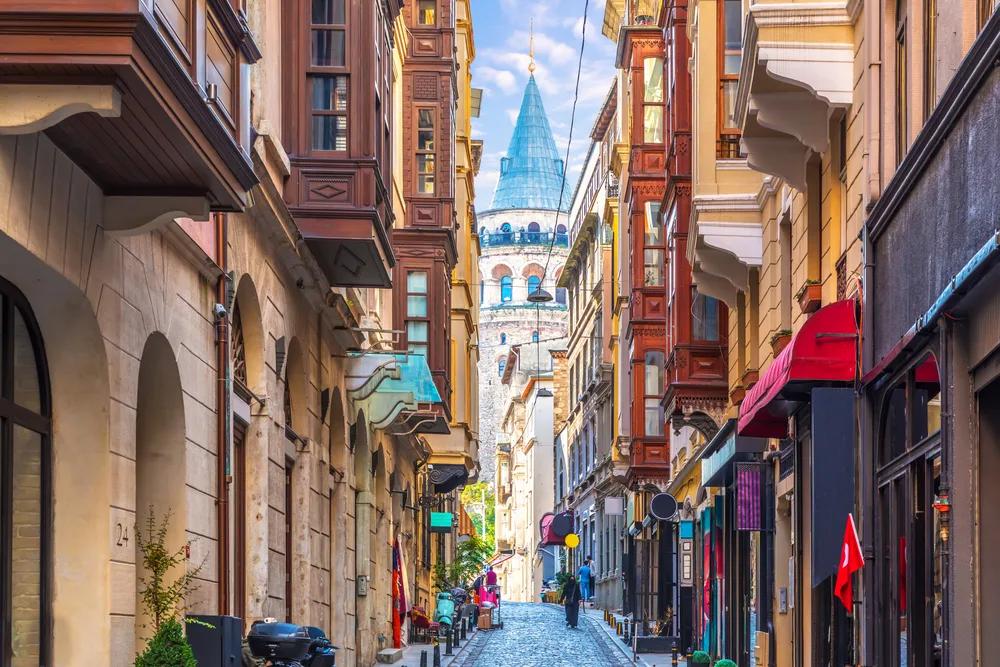
AlexAnton/Shutterstock
Yes. Istanbul is generally safe to visit, although petty crime can affect your visit there. Problems affecting the rest of Turkey, such as civil unrest and terrorism, occasionally spill into Istanbul, but not so often.
Before looking at Istanbul’s safety, you should know about the safety of the country where it is located. Most countries advise some level of caution when visiting Turkey.
The United States and many other governments place the country under a Level Two travel advisory, meaning travelers need to exercise increased caution. There is some risk of danger such as civil unrest, terrorism, and government crackdowns.
Istanbul is not Turkey’s capital, but it is its largest city. That means that protests are likely in this city as people exercise their rights in a place with political significance.
Recent demonstrations have included a march by thousands of people against the war in Gaza and a march against the killing of Turkish soldiers in Iraq. Protests in Turkey tend to be tense affairs and can easily escalate into violence or at the very least pronounced anti-Western sentiment.
It’s best to stay away from any demonstrations if you can. Government crackdowns against dissent are also common. International rights groups such as Human Rights Watch frequently criticize the Turkish government for arbitrarily detaining protesters in Istanbul and mistreating them.
The government is not likely to look kindly on foreigners it sees as getting involved in its internal affairs, so if you attend a protest, you could be detained.
Terrorism is also a risk in Istanbul. In February 2024, authorities killed two terrorists that attacked a local court in Istanbul in a deadly incident that killed at least one bystander. The risk of terrorism is not something you should ignore.
That being said, authorities are taking precautions to prevent terrorism, especially in the tourist core of Istanbul. You can expect to see plenty of armed policemen and soldiers as well as metal detectors to keep civilians safe.
Most governments such as the UK assess that Istanbul is actually one of the safest parts of Turkey. Any dangers or unpleasant situations you face in Istanbul will likely be far more mundane, such as crime.
Crime in Istanbul
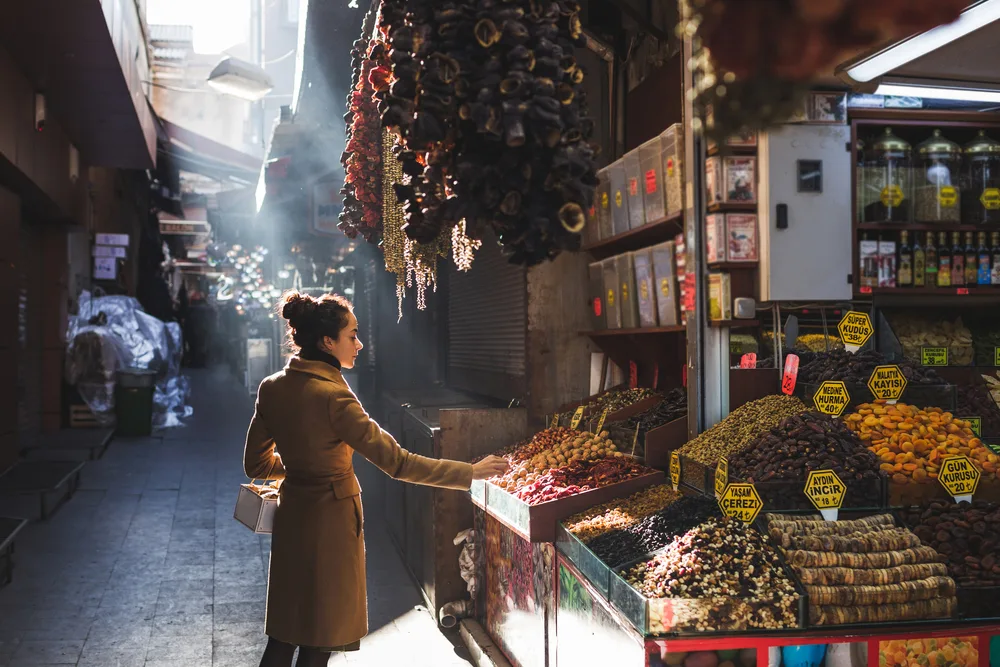
Breslavtsev Oleg/Shutterstock
According to crime statistics, Istanbul is a city with a moderate crime rate. While criminal incidents occur, which is normal for a city with several million people, the crime rate is not high enough to really cause concern for travelers.
According to Istanbul’s governor, the crime rate went down in 2023 by 13% compared to the previous year. This followed several years of consistent decline in crime statistics.
This is positive news because it shows that Istanbul is getting safer. However, public perception doesn’t necessarily agree with official statistics.
According to Numbeo, which collects survey data to create an accurate picture of what is going on with crime, 70% of respondents felt that crime increased over the past three years. Istanbul scored an overall 51.85 on the survey, which is a moderate rate.
People were most worried about petty crimes such as insults and attacks, as well as corruption and bribery. There have been several high-profile incidents in Istanbul, such as the July 2023 murders located in a liquor store, that made people feel unsafe.
Istanbul has a problem with illegal weapons, which contribute to overall criminality. Istanbul has the highest rate of illegal gun ownership in Turkey.
Despite these high-profile incidents, most crimes in Istanbul are actually petty property crimes or violations of municipal regulations such as children begging. These are the crimes tourists are also most likely to encounter.
Petty Theft
Istanbul is somewhat notorious for its pickpockets. While the problem isn’t as widespread here as in some other cities such as Cairo or Barcelona, it is still a problem you are likely to encounter as a traveler to the city.
According to the Australian government’s travel advisory for Turkey, pickpocketing and bag snatching occurs most often around popular tourist attractions such as the bazaars, Taksim Square, and Sultanahmet.
Whenever you are in a crowded area, make sure that your valuables are secure. When walking around Istanbul, avoid walking around with all of your valuables. Leave your passport and important documents in your hotel safe and only carry copies.
Put valuables in a secure place. Some people opt for a money belt, while others just use a secure cross-body bag as opposed to a tote or putting items in your pockets.
Scams
Besides outright theft, some criminals turn to scams to part people from their valuables. Make sure that you use common sense while traveling in Istanbul to avoid being the victim of such a scheme.
One common scam that the Canadian government warns about in its travel advisory for the country, targets tourists going out for a night on the town.
Be careful of overly friendly locals that want to invite you to “their secret spot” for a great night out—this is a common scam to trick people into paying astronomically high bills. Another common scam is the shoe-shine scam, when someone offers to shine your shoes for free but then demands a big payment.
Businesses such as taxis and shops sometimes scam tourists by charging credit cards in euros instead of lira or claiming the meter or credit card reader is broken. Basic street smarts can help you out in Istanbul. If something feels too good to be true, then it probably is.
Avoiding Bad Areas
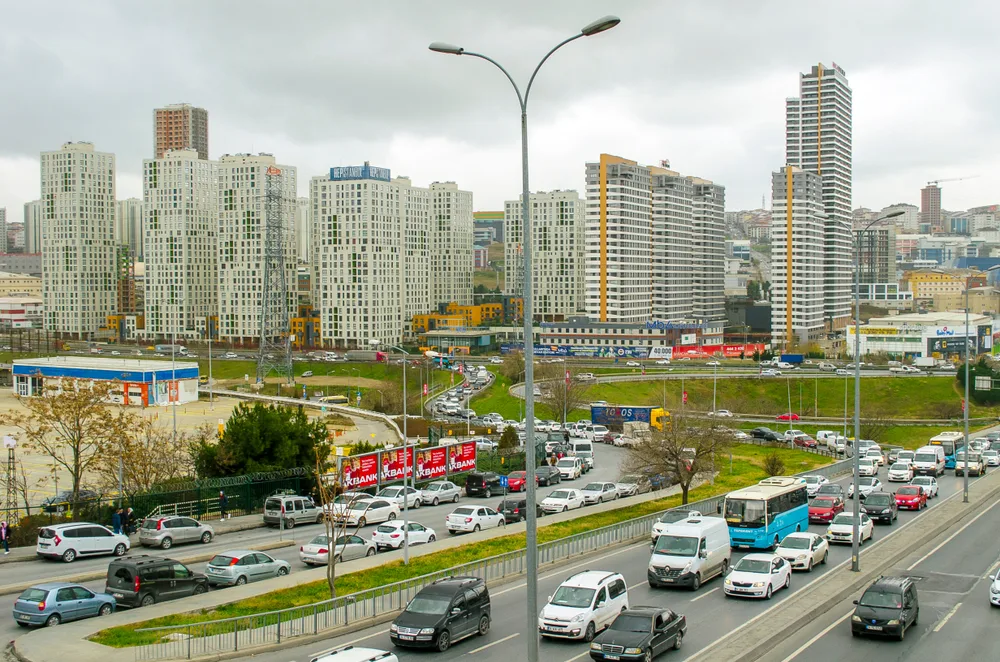
Cloudy day, rain, dark clouds. Skyscrapers, dense buildings. Traffic on U-5 federal highway. Turkey, Istanbul, Beylikduzu, Esenyurt – January 2020/Elens Barbaros/Shutterstock
Like any big city, Istanbul has some dangerous areas. Here are some neighborhoods that have higher crime rates, and you may want to avoid:
- Esenyurt (notorious for its high violent crime rate)
- Dolapdere
- Tarlabasi
- Beyoglu district
- Laleli (Istanbul’s red light district)
Most bad areas are located far away from the tourist attractions, but there are a few neighborhoods just off Taksim Square that feel sketchy, so trust your instincts.
Things to Consider
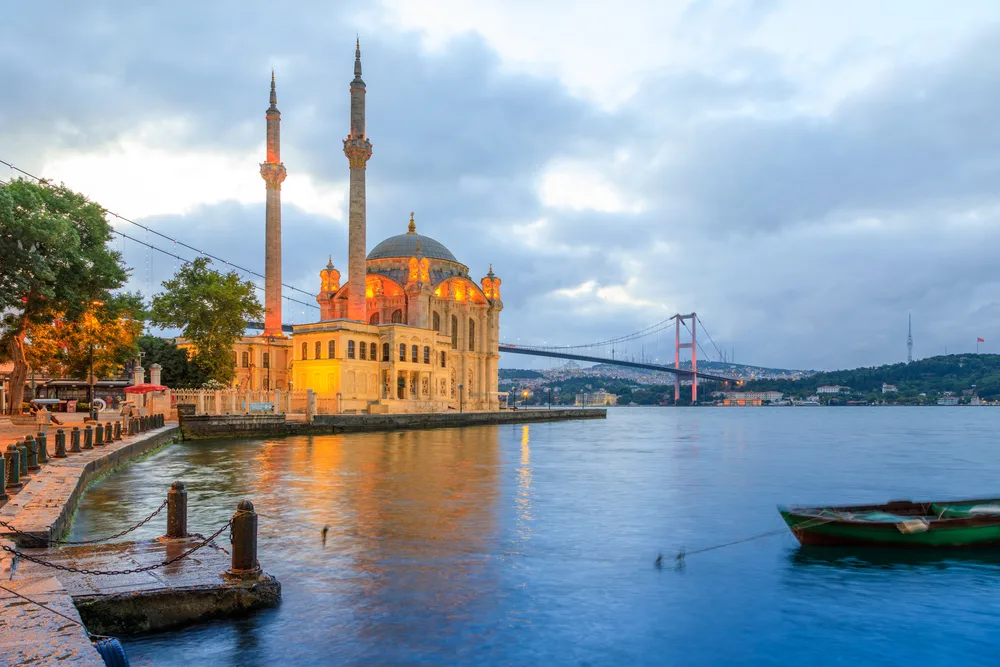
Fatihcinay/Shutterstock
Here are a few additional safety tips that can help you stay safe in Istanbul:
- Dress modestly. Istanbul is a modern city, but it has pockets such as Aksaray that are Islamist where revealing clothing is frowned upon. Plus, you will need modest clothing to enter mosques.
- Be careful in public transportation. Pickpockets and thieves take advantage of the crowds to slip away with valuables. Hold bags close to you and put backpacks on the floor where they can’t be taken unnoticed.
- Be careful when shopping. Common scams include passing off counterfeit Turkish rugs, gold coins, or other popular and expensive souvenirs. If you want to invest money in a high-quality souvenir, make sure you do your research ahead of time.
Frequently Asked Questions
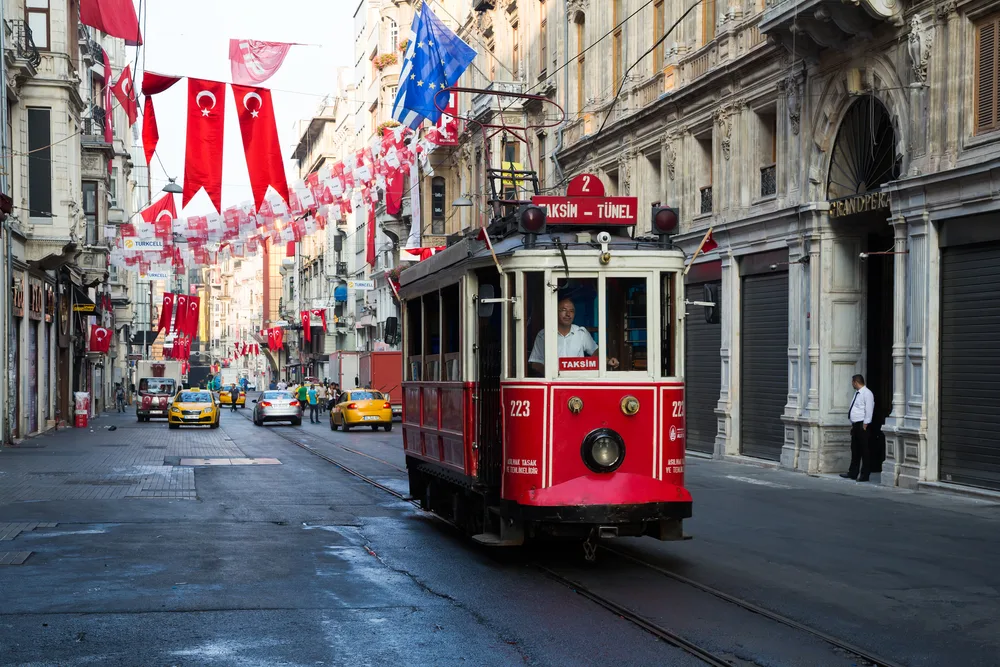
ISTANBUL, TURKEY – JULY 30, 2016: Retro tram on Istiklal street. Istanbul historic district. Istanbul famous touristic line. Red tram Taksim-Tunel/M101Studio/Shutterstock
Still unsure about visiting Istanbul? These questions can help:
Is it safe to go to Istanbul at the moment?
It is safe to go to Istanbul right now, despite the recent terrorist attacks. Authorities are stepping up efforts to keep the city safe.
Is it safe to walk at night in Istanbul?
Popular pedestrian areas are safe at night in Istanbul. However, like in any city, you don’t want to wander around unfamiliar areas. At night, avoid the area around Taksim Square if alone because it can get rowdy.
How safe is Istanbul for female tourists?
Istanbul is generally safe for female tourists, although women may receive unwanted attention and catcalling. In some conservative areas, women are expected to dress more modestly, and female travelers should be careful when going out at night to avoid drink spiking.
Is Istanbul expensive?
Istanbul has options for travelers of all budgets, but in general it is an affordable city. The lira crisis works in favor of visitors, whose money goes a lot further.
So, Is Istanbul Safe to Visit?
Overall, Istanbul is safe to visit. Although it has its problems ranging from pickpocketing to massive protests, the city is big enough that you can avoid most issues with smart planning and by following local advice. Happy travels!



